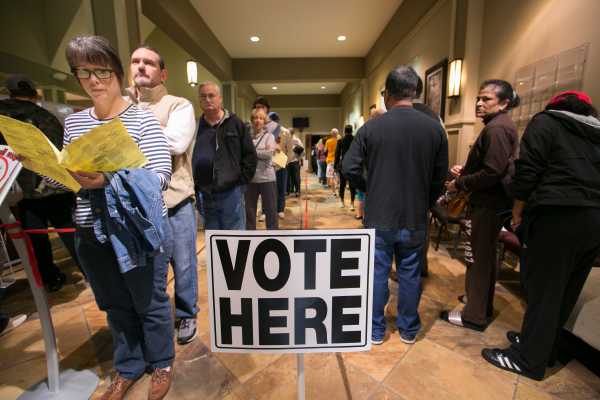
Republican Brad Raffensperger just won a runoff election to become Georgia’s next secretary of state.
Raffensperger defeated former Georgia congressman John Barrow, a Democrat, garnering more than 50 percent of the vote with most of Georgia’s 2,634 precincts reporting. Raffensperger will serve as Georgia’s chief elections official and oversee voting in the state.
The results come weeks after Georgia’s controversial governor’s race; former Georgia Secretary of State Brian Kemp, a Republican, defeated former house minority leader Stacey Abrams, a Democrat who would have been America’s first black woman governor, in an election marred by voting issues and accusations of voter suppression.
Kemp remained in office and continued to oversee the state’s electoral process throughout his campaign for governor, and finally resigned shortly after declaring victory in the election. Raffensperger will now officially replace him.
An engineer and business owner who began his first term in the Georgia state legislature in 2015, Raffensperger has argued that combatting voter fraud (which has not been an issue in recent elections in the state) would be his main focus as the state’s chief elections official. Raffensperger has also criticized calls to overturn some of Kemp’s more controversial practices like aggressive purges of infrequent voters, arguing that election integrity will be best preserved through strict voting measures.
Raffensperger supports increasing training for county-level elections officials, but would leave many practices unchanged from Kemp’s tenure. He was endorsed by Kemp and President Donald Trump, who recently tweeted that the candidate would be “fantastic” for the state.
The Republican victory in the runoff is particularly significant, concluding a race that was largely seen as a referendum on the recent voting rights controversy. And, in the weeks before the election, Abrams, joined by civil and voting rights groups, argued that the runoff was a key part of a larger fight over minority voting rights in the state.
Raffensperger’s victory comes after months of controversy around Georgia’s election system
The December runoff came more than two weeks after Abrams ended her campaign with a speech acknowledging that Kemp had legally won the race, but stopping short of conceding or saying that the election as a whole was legitimate. “I will not concede because the erosion of our democracy is not right,” she said at the time.
On November 27, a pair of groups allied with Abrams filed a lawsuit that seeks to overhaul the state’s controversial election system, arguing that it violated the constitutional rights of voters of color. To resolve this, the plaintiffs proposed reforms, including ending the use of electronic voting machines without a paper trail and stopping purges of infrequent voters.
That lawsuit is just one of several to challenge voting restrictions in Georgia in recent weeks. Before and after the 2018 election, other suits challenging parts of Georgia’s election system, like the “exact match” registration rule and the rejection of some absentee ballots, ended in victories for civil rights groups. With Raffensperger’s election, these legal fights, and other fights over elections in Georgia, are likely to continue.
Sourse: vox.com






